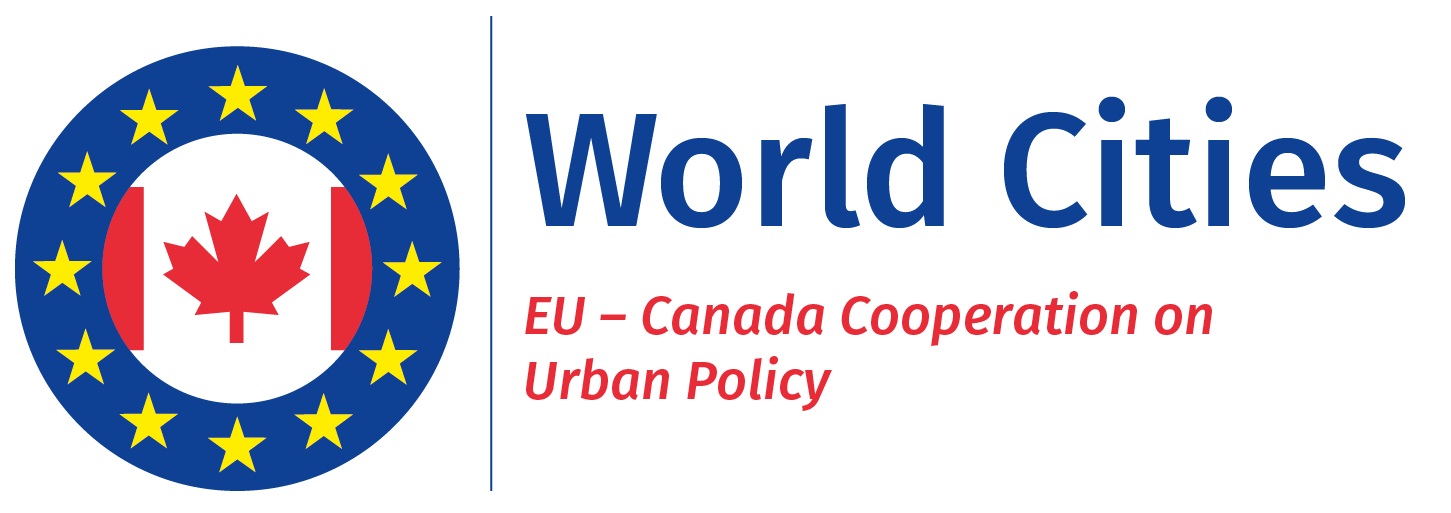Sustainable urban development and the challenges of dealing with climate change are important issues for both European and Canadian cities. Canadian cities are on the front line of the green economy and have shown leadership in protecting the environment by improving energy efficiency, providing sustainable transportation options, treating wastewater, and limiting air pollution. European cities, similarly, have extensive experience in dealing with urbanization challenges and in developing smart, green, inclusive, and attractive cities with a high standard of living.
The World Cities programme’s EU-Canada Urban Policy Cooperation has been organized in the interest of promoting sustainable urban development in both regions. The EU-Canada Cooperation will bring together four Canadian and four European cities to discuss and collaborate on actions connected to the three central themes of resilience and adaptation, ecosystem services, and low-carbon development. This cooperation is a unique opportunity for cities to share expertise and gain insight from other municipalities that are working in areas of mutual interest. The Cooperation will provide Canadian and European participants with valuable first-hand experience in sustainable urban development issues.
Within the EU-Canada cooperation, the World Cities programme will prepare, run, and evaluate three working meetings – two in Canada and one in Europe. The programme will also launch a collaborative online platform to facilitate the exchange of information and good practices between European and Canadian cities. Canadian and European project cities will cooperate based on similarities between their thematic areas, experiences, and goals; communication with all cities in the exchange provides additional opportunities for collaboration and potential for new ideas.
An outline of the key events of the EU-Canada Cooperation are as follows:
- Selecting four European and four Canadian cities for implementing twinning schemes during 2015 – 2016.
- Implementing one two-day working meeting in Canada for five delegates from each participating city. This working meeting will be followed by field visits in which European cities visit their Canadian partners for a more in-depth discussion of their shared topics. Date: early May 2015.
- After a period of decentralized cooperation among the cities, a second working meeting will be held in a participating city in the European Union. The working meeting will be designed for five delegates from each participating city. This working meeting will be followed by field visits in which Canadian cities visit their European partners. Date: Second half 2015.
- After 2-3 months, a closing meeting will be held in a participating Canadian city. Three representatives from each participating city will attend. Date: First quarter 2016.

